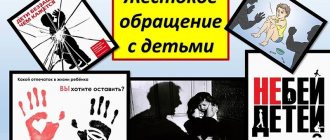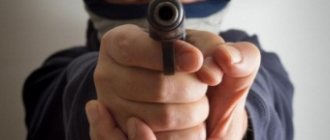Over the past week, social networks have literally been overwhelmed by a wave of discussion of a number of outrageous stories from the life of Russian schools. Cases of teachers bullying students were filmed and posted on the Internet. First, a teacher from Sakhalin brought a schoolgirl to tears because of a hole in her blouse, and she did it publicly - in front of the whole class. Then footage from Komsomolsk-on-Amur appeared online, where a teacher attacked a second-grader with her fists, but he could not stand it and responded by throwing his briefcase at the teacher - a real fight ensued. In a small town near Tomsk, a primary school teacher hit a boy’s head on his desk because he constantly tossed and turned and scratched his leg. It is noteworthy that all these stories happened not with young and inexperienced teachers, but with teachers whose experience is quite long: from 20 to 40 years of work.
It is unlikely that I would be mistaken if I assume that such situations have always existed, it’s just that children have become more advanced, know about their rights and make excellent use of technology to punish teachers they hate. But I would separately note that the above are examples of direct physical violence, the incidents were filmed by child witnesses and teachers simply cannot deny their actions or justify themselves. However, more often than not, teacher-facilitated bullying occurs unnoticed, without the use of physical violence, over a period of weeks, months, or even years. The problem is that children often do not talk about such things due to fear and lack of life experience, and parents simply do not notice that their child is in danger.
Passive indifference
If a teacher doesn’t hit a child’s head on a desk, doesn’t scream, doesn’t call children “idiots,” does this mean that we have an excellent teacher? No, before us is just a teacher who does not commit actions for which he could one day lose his job. The fact is that at school the teacher has power, and therefore has in his arsenal a lot of opportunities for bullying children, which at first glance are not at all obvious. How might this manifest itself?
Advertising on Forbes
Most often, teachers simply do nothing. They silently watch as one of the children is consistently bullied in their class. In the 90s, there were common cases when, during a lesson, the school attendants called a student into the corridor, supposedly for some important matter, but immediately at the office they were pressed against the wall and assigned to “shoot in the yard after school.” Many have watched the series “School” by Guy Germanicus, in which all this is shown quite truthfully. Nowadays there are security guards and even cameras in schools, but children will always find ways to hide this from adults. A Barnaul resident (and journalist) told on Facebook how her son was met every day after school by his peers, beaten with pieces of ice, and not given the opportunity to go home. The story received wide publicity, and what is typical is that the school principal and teachers deny everything, despite the fact that the boy’s beatings were officially recorded. Both a post on social networks (that is, making it public) and contacting the police are just an example of what parents need to do if their child is being bullied, and teachers condone this bullying. First of all, you need to talk with the principal and class teacher, and if the teachers at school do not hear you and begin to blame you and your child for the current situation, you need to fight further: write to the local Department of Education, on social networks, contact local media. Many parents are afraid to do this, so that it doesn’t get worse, so that the child doesn’t get a bad grade because of such parental activity, so that he doesn’t look like a “black sheep.” But I suggest asking yourself the question: could things get worse?
Actually it can. The teacher has another way to use his power - agree with the parent, but behave with the child as before, demonstrating to him in every possible way that the parents will not help here. Recently, a story from one of the provincial schools was discussed on social networks, where a mother asked the Russian language teacher to let her second-graders go to recess, and not force them to complete assignments that they did not have time to complete in class. The next day, the teacher pointedly sent one child to recess, while the rest of the class continued to finish their assignments. All this was accompanied by comments: “You are tired, you need a change, go rest.” The next day this boy was bullied by the whole class. Yes, precisely because he is not like everyone else. It’s good if the child has a trusting relationship with his parents, and he talks about this. If not, then teachers can do everything to make your complaint work against you, they say, look how helpless you are, and we are the power here. What should parents do in such cases? It is very important to talk with your child, discuss every day how things are going at school, and not limit yourself to questions about grades. Children need to know that we are always on their side, no matter what happens.
According to the laws of the teenage pack: what to do if a child is bullied at school
Psychological injuries are more difficult to detect than bruises or scrapes.
Photo: EAST NEWS
Almost all children experience bullying at school. But it also happens that banal skirmishes and showdowns develop into a threat to life. Two families contacted the editors of Komsomolskaya Pravda - from Moscow and the Moscow region. Their children were cruelly bullied by their classmates. Using these two stories as an example, we tried to understand: how can you help a child not become a victim of bullying? And what to do if you still couldn’t save him?
Story one. School “terrorist”
The other day, Sasha (hereinafter, the names of all characters have been changed at their request and in compliance with Russian legislation. The editors have contacts and real names. - Ed.) turned 15 years old. The main gift he received for his birthday was given to him by his school. The director and teachers finally agreed to hold a meeting and find out how it happened that one of Sasha’s classmates has been keeping not only schoolchildren, but also some teachers in fear for several years.
“This year my son became the victim. Yes, it was a different boy. Every year this “terrorist” chooses a new victim and gets her. This has been going on for more than three years,” says Valentina, Sasha’s mother. “I tried to talk to his parents - it’s like talking to a chair or a table. “Gosh is not like that, this is all slander.” I talked to the teachers - they can't do anything. Gosha tells the teachers in plain text - she went like... an old whore. And they are silent.
Before this, Gosha was expelled from five other schools. But this school can't get rid of him. The maximum that was achieved was to hold a teachers' meeting after Gosha beat several children to the point of fractures. At the teachers' meeting, Gosha promised that this would not happen again. And I didn’t lie - he really doesn’t do that anymore.
“Now he is creating pages on VKontakte where he trolls and bullies my son,” says Dmitry, Sasha’s dad. “He takes pictures of his son on the sly, posts these pictures on the Internet with obscene captions about him, about my wife, about our daughter. We wrote a statement to the local police officer and attached 37 screenshots of insults and threats. I don’t think these are just empty words - Gosha goes to school with edged weapons, and this is not a penknife, but brass knuckles and knives.
The second story. Tied up autistic man in the closet
Vitaly’s son was first attacked last year, when the boy was returning home from training. He was severely beaten by two classmates. Now they are threatening to do the same again. The parents had to leave their son at home so as not to risk it.
“After the beating, we wrote a statement to the Internal Affairs Directorate, there was an inspection,” says Vitaly. “But for some reason the surveillance cameras in that place weren’t working.” We provided a certificate of injury - the other side brought some kind of document, from which it followed that there were also retaliatory actions on the part of my son. Of course, he had to defend himself. As a result, the parents of the offenders made a public apology and that was all. Now this gang is threatening to break my child’s head, he doesn’t go to classes. And the teachers call and offer to transfer him to another school, away from these thieves.
This is not the first time that complaints about aggressive teenagers have been heard. A couple of years ago they bullied an autistic boy. His mother brought him to school, hoping that ordinary children would help the child adapt.
“They gagged him, tied his hands, put him in a closet and began to choke him,” says Vitaly. — Half the class was present, but only three children later confirmed that it happened. The boy lasted only a couple of weeks at school.
The difficulty is that this is a small closed military town in the Moscow region, where everyone knows each other. As a result, they decided not to register one of the offenders with the police, so as not to interfere with his father’s military career. The mother, who holds a high position in a large bank, stood up for another.
“I was at a reception with the head of the education department - he, as they say, heard me,” says Vitaly. “He immediately made several calls, and the school held a social meeting. But things didn’t go further than that. Nobody gives evidence, and everything goes downhill.
Almost all children experience bullying at school.
Photo: EAST NEWS
Parsing
Komsomolskaya Pravda addressed the directors of both of these schools. They refused to comment on what happened, although they admitted that there are problems and they are working on them.
“We are now talking with Gosha’s mother, and it’s difficult for me to tell you anything yet,” said Mikhail Alexandrovich, the director of the school where Gosha and Sasha study. - I can't give you any comments.
As it turned out later, the negotiations ended successfully - the mother agreed to take the child from school.
“As I was told, he came to the meeting and saw the commission on juvenile affairs, teachers, and other parents. I saw that cameras were installed on which all this would be recorded. And she immediately refused to discuss anything and agreed to take Gosha from school,” Valentina told KP.
The administration also had a business proposal for Valentina herself. After a call from a KP correspondent, director Valentin was asked not to publicize this situation in the media, so as not to spoil the school’s reputation. And in return they undertake to expel Gosha.
“Of course, this does not guarantee my son’s safety - Gosha will still live in our area, they will meet on the street,” says Valentina. “That’s why we still wrote a statement to the police about bullying on social networks.”
We do not publish school numbers and do not indicate the names of the heroes of the publication, so as not to complicate their lives even more. Because each such publication adds fuel to the fire, and the problem is often not solved even with a change of school. Firstly, the offenders already know where their victim lives and what he does. And secondly, after a public showdown, even those who previously remained on the sidelines may turn against the child.
Official statements were sent to the Moscow Department of Education and the Odintsovo District Education Department from the parents of the affected children.
IMPORTANT
What could be a sign of bullying?
— Psychological injuries are more difficult to detect than bruises or scrapes. Parents should pay attention to the following symptoms:
— The child began to sleep poorly and is often tormented by nightmares.
- Lost his appetite and even refuses his favorite food, or, on the contrary, eats a lot.
— I began to get tired quickly, and could not concentrate on one thing.
— Became aggressive, outbursts of anger appeared.
— Phobias and fears associated with something specific appeared.
— The child constantly experiences feelings of guilt and shame.
These signs indicate that the child may have suffered serious psychological trauma. This could be not only bullying at school, but also a difficult parental divorce or other events that he witnessed - for example, an accident or a fight.
In any case, the main thing that psychologists advise parents is to maintain constant contact with the child and seek mutual understanding. Then he himself will tell you what problems are troubling him, and it will be easier and faster to help him. And if there is no such contact, then it will not be possible to “open” the child like a closed box. There should always be a trusting atmosphere in the family, and not just when something happens.
Bullying of schoolchildren in different countries of the world.
Photo: Nail VALIULIN
ADVICE FOR PARENTS
The most effective thing is to prevent bullying . This is the most difficult thing. The role of parents in this case is paramount.
It is important for parents to teach their child how to stand up for themselves . And these are not necessarily hand-to-hand combat courses. It is better to try to stop the conflict before it escalates into a fight . How to do it?
Firstly, you need to teach your child to remain polite, even towards offenders . Psychologists advise not to respond to rudeness with rudeness, but to give an unexpected answer: for example, “Yes, I’m not perfect. But we are all like that.” Well, that is, to answer outside the box, to disrupt the aggressor’s script .
Secondly, try to explain to the child that his self-esteem should not be based on the opinions of others, but on real skills and achievements .
Thirdly, it is worth teaching your child to negotiate and seek compromises . In adult life, this will be useful to him much more than the ability to resolve disputes with his fists.
INSTRUCTIONS FROM A LAWYER
Where to complain and what threatens the aggressor
Nadezhda Knyaginina, junior researcher at the Center for Educational Law at the Institute of Education, National Research University Higher School of Economics, comments :
1. We write a statement to the school director. According to Article 61 of the Federal Law “On Education in the Russian Federation”, a student can only be expelled from the age of 15 as a disciplinary measure, and only if other disciplinary measures have not led to a positive result.
2. We go to the commission on juvenile affairs. This is the case if the measures taken by the school did not work.
3. If there are physical injuries, the child’s things were taken away or they were damaged, we contact the police. In the first case, you must first go to a medical institution and record the beatings.
4. Can the offender be registered? Administrative and criminal liability for minors begins at the age of 16 (for intentional infliction of grievous and moderate harm to health - at the age of 14). A minor is automatically placed on preventive registration in the PDN.
But even if a minor student has committed an offense but has not yet reached the age of responsibility, he is also taken into account.
5. What then? After the aggressor has been registered, these authorities begin to “work” with him - regularly visit school, check his living conditions at home, talk with parents, teachers, etc. In some cases, for example, if there is a risk of reoffending, a minor may be placed in a temporary isolation center for juvenile offenders by a court decision for up to 30 days.
QUESTION OF THE DAY
How did you resolve conflicts at school?
Sergei MALINKOVICH, head of the political association “Communists of Russia”:
“There were a lot of hooligans, and I myself was a hooligan. But we didn’t have any bullying. The maximum is to pour water into a briefcase, draw in a textbook, or pull a classmate’s pigtail.
Sergei VOITENKO, deputy of the Samara Duma:
— At school I always tried to negotiate. If someone solved problems with their fists, then I convinced them with words.
Nikolay SOBOLEV, video blogger:
“We were surrounded by classmates who were bullied by others. It is useless to try to explain anything to offenders. Their moral principles are either unstable or formed incorrectly.
Yulia CHICHERINA, singer:
“I was a bully and often fought, but sometimes I also got hit hard, especially hard when I defended those who were bullied.
Leonid KHAZANOV, third generation geologist:
“I got a lot of trouble from my classmates, who called me a poor person just because I was from a single-parent family that couldn’t afford much. I had to fight with them.
Fig.: Katerina MARTINOVICH
Evgeniy MAKAROV, retired police colonel, Nizhny Novgorod:
- We fought. Moreover, in high school I was first part of a group of hooligans, then athletes, but all problems were still solved with fists.
Alisa ANTONOVA, student, Simferopol:
— At school they boycotted me because I didn’t go to cleanup days. A medical exemption due to heart problems did not stop my classmates from luring me into a dark corner of the school garden and feeding me grass.
Galina EMELYANOVA, system administrator, Sevastopol:
“I was an outcast at school. I was bullied because I had an injury that affected my facial expressions. They kicked the briefcase and locked it in the office. But I ruined the class's prom.
Arsen GALSTYAN, Olympic champion in judo:
— From an early age I enrolled in the sports section. If you go to the gym, you are always sure that you can stand up for yourself.
BY THE WAY
How to protect your child from bullying at school
The famous Norwegian psychologist Christine Oudmaier has been working for many years to study the phenomenon of teenage aggression and gives advice to children, parents and teachers (details)
Letter of the law
The most important thing that parents need to do in such a situation is to open a set of laws that regulate the rights of children. You can start with the simplest thing: any school has a charter, which probably states that children have the right to respect for human dignity and protection from psychological and physical violence. If children are not allowed to go to recess, this is also a violation of their rights. You can read about how their life at school should be organized in the sanitary and epidemiological requirements (SanPin). As a rule, there are enough links to such documents, but you can always refer to the Federal Law “On Education”, which clearly states the responsibilities of teachers. After all, according to Article 21 of the Constitution of the Russian Federation, no one should be subjected to torture, violence, or other cruel or degrading treatment or punishment. These laws need to be printed and used as arguments in school conflicts.
Separately, I would like to say that such articles and posts are usually accompanied by comments in defense of teachers. Like, it’s also hard for teachers, the children “bring them to grief.” This, for example, was emphasized by the teacher’s defenders in Komsomolsk-on-Amur: the second-grader, according to them, was “insane,” insulted the teacher, disrupted lessons, so the teacher could not stand it. We forget that an eight-year-old child and a teacher with almost half a century of experience are not equal forces. If a child violates the rules of behavior, then it is teachers, psychologists, speech therapists, and neurologists who must help him overcome them. Adults cannot respond to violence with violence precisely because they are adults and must set an example for children. By supporting bullying, we, as adults, subscribe to the fact that we can live according to the laws of the wolf pack, that the one who is stronger wins.
The other side of this conflict is that the teacher, like the entire school, has ceased to be an authority for the children. Old school teachers, in turn, want children to listen to them with open mouths and obey in everything. But as before, it will no longer be the case - the teacher today is not a unique bearer of knowledge, because we can acquire a lot of knowledge without his help. Therefore, now the teacher must offer something in return, something that the children especially need. First of all, these are respectful and trusting relationships, the transfer of life experience, and the ability to overcome conflict situations with dignity.
- The price of security. What does “knife fighting” teach in a Perm school?
- In first grade: why children don’t want to go to school
How do you know if a death threat is real?
The following signs will help determine that the threat of violence is real:
- swinging, rapid reduction of physical distance on the part of the attacker;
- demonstration of weapons or dangerous substances (for example, poisons);
- creating an atmosphere in which the victim has the convinced impression that reprisals will be committed against him (for example, blocking the exit from the premises, defiantly breaking some objects in front of him);
- presence of material evidence (letters or telephone calls with threats, other messages).
Important! It is not necessary that the attacker threaten the person personally. The criminal can also be brought to justice if he threatened to use violence against people close to the victim.
According to Art. 119 of the Criminal Code of the Russian Federation, you can attract people who deliberately wanted to instill fear in the victim and deprive him of peace of mind. In this case, no real harm should be caused to the citizen.
If the offender threatened the victim during the beating, the attacker will be held accountable for causing bodily harm. Sometimes judges impose punishment under a combination of articles of the Criminal Code of the Russian Federation.








